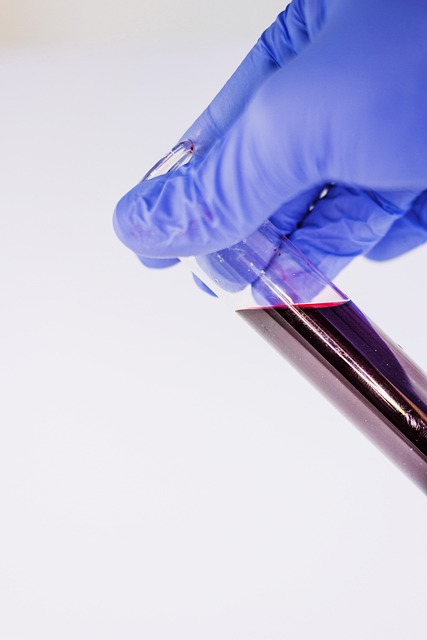A full body blood test is a comprehensive medical procedure analyzing various bodily systems and functions, including proteins, hormones, enzymes, cells, red and white blood cells, and more. It offers early detection of chronic conditions like diabetes, cardiovascular diseases, liver or kidney issues, autoimmune disorders, and cancer, enabling healthcare professionals to initiate timely interventions or lifestyle changes for better prevention and management.
A full body blood test, also known as a comprehensive metabolic panel (CMP), offers a window into your overall health. This powerful tool provides insights into various physiological systems, from kidney and liver function to electrolyte balance and blood sugar levels. By analyzing a wide range of markers, it can detect early signs of diseases such as diabetes, cardiovascular issues, and even certain cancers, empowering proactive healthcare.
- What is a Full Body Blood Test?
- Benefits and Early Disease Detection Capabilities of Full Body Blood Tests
What is a Full Body Blood Test?
A full body blood test is a comprehensive medical procedure that involves drawing samples from various parts of the body to analyze different systems and functions. Unlike routine blood work that typically focuses on specific organs or markers, a full body blood test aims to provide an in-depth look at overall health by assessing multiple aspects of the circulatory system and internal organs. This includes measuring levels of various proteins, hormones, enzymes, and cells, as well as checking for potential indicators of disease or inflammation.
The test offers a holistic view by examining red and white blood cells, platelets, and plasma, among other components. It can detect early signs of chronic conditions such as diabetes, cardiovascular diseases, liver or kidney issues, autoimmune disorders, and even some types of cancer. By identifying these markers at an early stage, healthcare professionals can initiate appropriate interventions or lifestyle changes to prevent or manage these conditions more effectively.
Benefits and Early Disease Detection Capabilities of Full Body Blood Tests
Full body blood tests offer a comprehensive and insightful look into an individual’s overall health, making them a powerful tool for early disease detection. Unlike traditional diagnostic methods that often focus on specific symptoms or organs, these tests analyze a wide range of markers in the blood, providing a holistic view. This includes measuring various hormones, vitamins, minerals, and immune system components, as well as tracking red and white blood cell counts and evaluating protein levels. By detecting subtle changes or imbalances early on, healthcare professionals can intervene before diseases progress.
One of the key advantages of full body blood tests is their ability to identify potential health issues at an incipient stage when they are often most treatable. They can uncover hidden risk factors for chronic conditions like cardiovascular disease, diabetes, and certain cancers. Moreover, these tests can monitor inflammation levels, assess organ function, and detect early signs of autoimmunity or infection. By providing such a detailed snapshot of the body’s inner workings, full body blood tests empower individuals to take proactive measures towards maintaining optimal health and well-being.
A full body blood test offers a comprehensive way to assess your overall health and detect potential diseases at their earliest stages. By analyzing various markers across multiple systems, it provides valuable insights that can empower individuals to take proactive measures for disease prevention and management. Incorporating this powerful tool into routine healthcare could significantly impact long-term wellness outcomes.
